Frozen bones pose no toxicity risk to dogs; however, they can lead to tooth fractures and gum injuries. So, you should refrain from offering frozen bones to your canine companion. However, when approached with caution and proper understanding, frozen bones can be a safe and beneficial addition to your dog’s diet.
Dogs are natural chewers from their ancestral roots as hunters and scavengers. Chewing is not only a source of pet entertainment but also serves several crucial purposes. But what about chewing on frozen bones? Can dogs eat frozen Bones?
Can Dogs Eat Frozen Bones?
No, it is not recommended to give dogs frozen bones to eat. Frozen bones can be extremely hard and brittle, which increases the risk of a dog’s teeth breaking or fracturing while attempting to chew on them. Frozen bones can splinter more easily, and these splinters can cause injuries to a dog’s mouth, throat, or digestive tract.
Whether frozen or not, raw bones also pose a potential risk of bacterial contamination, including Salmonella and E. coli.
To provide a safe chewing experience for your furry friend, consider offering appropriate chew toys, dental chews, or specially designed edible dental treats approved by veterinarians.
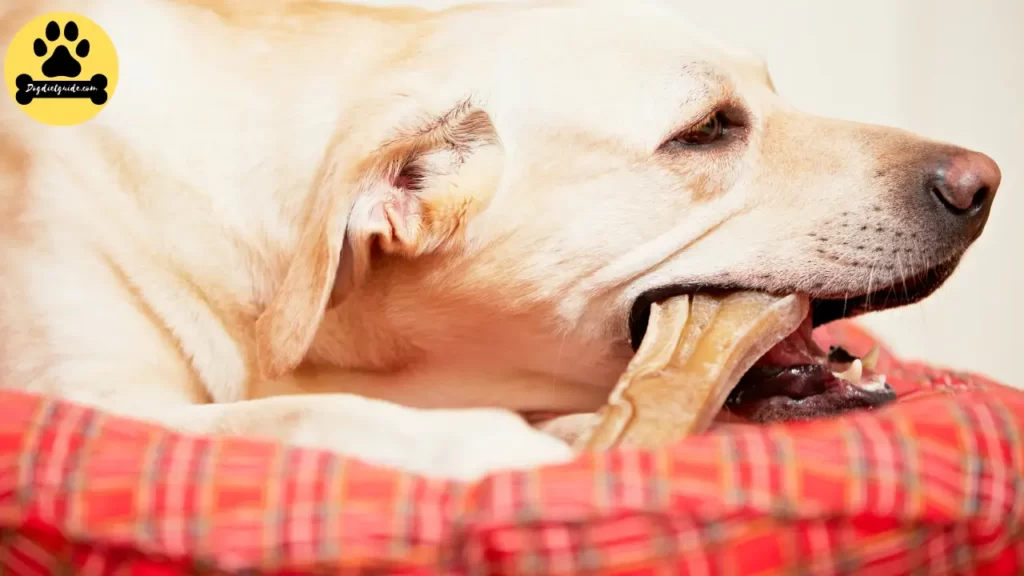
Why Do Dogs Like Bones?
Dogs are descendants of wolves, predatory animals that hunt and eat prey, including the bones.
-
Chewing on bones can help keep a dog’s teeth clean and healthy. The gnawing action helps remove plaque and tartar buildup, reducing the risk of dental issues like gum disease and tooth decay.
-
Bones provides pets with mental stimulation and helps alleviate boredom. Chewing engages their minds and provides a productive way to expend energy.
-
Puppies undergo a teething phase, during which their gums are sore and itchy. Chewing on bones or other appropriate chew toys can help alleviate discomfort and provide relief.
-
Bones often have residual traces of meat and fat, which appeal to a dog’s sense of smell and taste. The aroma and flavor make bones enticing to dogs.
Side Effects of Frozen Bones For Dogs
-
Dental Damage: Risk of fractures or cracks in teeth.
-
Choking Hazard: Potential for choking on bone fragments.
-
Gastrointestinal Issues: Possible constipation or blockages.
-
Bacterial Contamination: Exposure to harmful bacteria.
-
Mouth and Gum Injuries: Cuts or abrasions from chewing.
-
Dietary Imbalance: Disruption of a balanced diet.
-
Food Aggression: Potential for conflicts among dogs.
-
Temperature Sensitivity: Discomfort from extreme cold.
-
Behavioral Issues: Possessiveness and behavior problems.
What Are The Safe Types Of Bones Dogs Can Eat?
Dogs can safely consume certain bones, but it’s important to be cautious and choose appropriate options.
Prioritize consulting your veterinarian before adding new foods, including bones, to your canine’s diet.
Here are some types of bones that are generally considered safe for canines to consume:
1) Raw Meaty Bones
These are soft and pliable bones that contain meat and connective tissue. They are usually found in cuts like chicken necks, backs, wings, and turkey necks.
Raw meaty bones can help clean your dog’s teeth and provide nutrients. However, always supervise your dog while eating bones and ensure the bones are appropriate for your pet’s size.
However, ensure the bones are free from bacterial contamination such as Salmonella and E. coli.
2) Beef or Bison Marrow Bones
Large, weight-bearing bones can be given to larger dogs, especially if they contain marrow.
These bones should be raw and large enough to prevent your pooch from swallowing them whole.
You should remove the bone once the marrow has been consumed to avoid splintering.
3) Lamb Neck Bones
These are softer than weight-bearing bones and can be given to medium to large dogs.
As with other bones, ensure proper supervision and removal once the bone becomes small or brittle.
4) Rawhide Alternatives
Some commercial products offer digestible alternatives to traditional rawhide bones.
Look for bones made from compressed vegetables, rice, or sweet potato.
5) Recreational Bones
Large knuckle or joint bones, like beef or bison femur bones, can be given to larger canines as recreational chews.
Ensure the bone is big enough that your puppy cannot swallow it whole, and always monitor them during chewing.
Can Puppies Eat Bones?
Yes, puppies can eat certain types of bones. Still, it’s important to choose the right kind and take precautions to ensure their safety. Raw meaty bones, like raw chicken or turkey necks, raw lamb ribs, and raw beef marrow bones, can contribute to the dental well-being of puppies while supplying vital nutrients.
However, there are some important points to consider:
-
Always choose bones appropriate for your puppy’s breed and age. Avoid small bones that can be easily swallowed or pose a choking hazard.
-
Avoid giving cooked bones, as they can splinter and pose a potential hazard.
-
Always supervise your puppy when eating a bone to ensure they don’t break or swallow large pieces.
-
When incorporating bones into your puppy’s diet, begin with modest portions and observe their response closely. Some puppies might have sensitive stomachs, so transitioning slowly is important.
-
Consult your veterinarian before introducing bones into your puppy’s diet, especially if your puppy has any health conditions or dietary restrictions.
-
Bones should be considered a treat or occasional addition to your puppy’s diet. They shouldn’t replace a balanced commercial puppy food that provides all the necessary nutrients.
-
If you’re considering a raw diet for your puppy, research and understand the principles of raw feeding to ensure your puppy gets a balanced and complete diet.
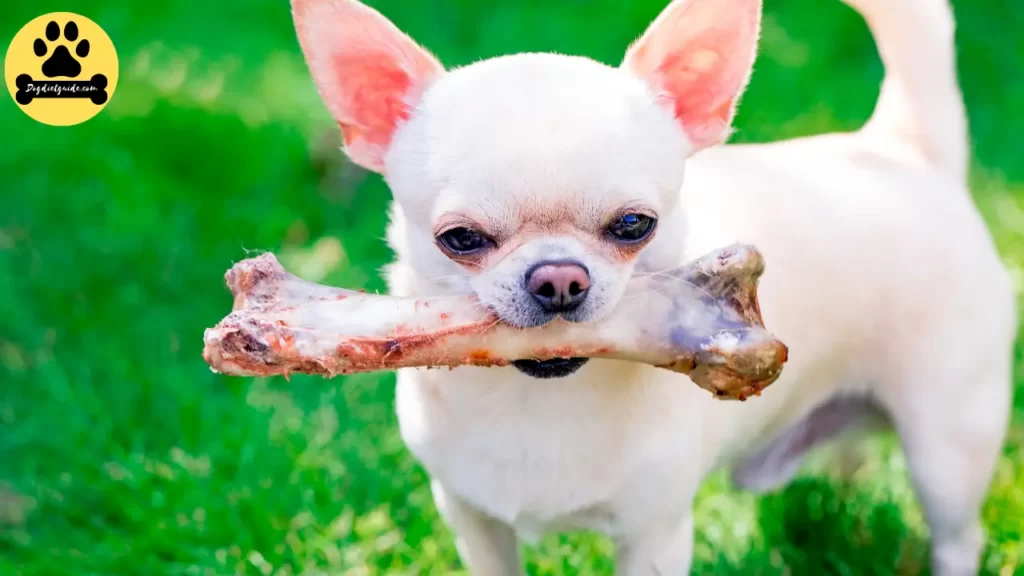
Introducing Frozen Bones to Your Dog
Before introducing frozen bones to your pet’s diet, it’s essential to consult with your veterinarian. Your veterinarian can provide personalized guidance on the appropriate bone size and frequency based on your dog’s needs.
After introducing frozen bones, closely monitor your pup’s response.
Observe their chewing habits, bowel movements, and overall behavior.
If you notice discomfort, digestive issues, or behavioral changes, discontinue using frozen bones and consult your veterinarian.
Read More From Our Dog Food Guide:
FAQs
Can dogs eat cooked bones?
No, it’s not safe for dogs to consume cooked bones. Cooking makes bones brittle and prone to splintering, leading to serious internal injuries, including choking, blockages, or punctures in the digestive tract. Always offer your dog raw, meaty bones appropriate for their size and breed, as these are less likely to splinter and provide dental benefits.
Should you defrost bones for dogs?
Yes, it’s recommended to defrost bones for dogs before feeding them. Thawing bones in the refrigerator ensures a gradual temperature change, reducing the risk of bacterial growth and maintaining the bone’s integrity. Avoid using a microwave or boiling water for defrosting, as these methods can unevenly heat bones and increase the risk of splintering. Once thawed, supervise your dog while they enjoy the bone to ensure safe consumption.
Can you refreeze raw bones for dogs?
Refreezing raw bones for dogs after they have been thawed is not advisable. Repeated freezing and thawing can degrade the quality of the bone, making it more susceptible to splintering and potentially causing harm to your dog’s digestive tract.
Is it OK for dogs to eat raw frozen?
Yes, it is generally safe for dogs to consume raw frozen foods, including raw meat and bones. Freezing helps preserve the nutritional value of the food and can be beneficial for dental health. However, always supervise your dog while eating frozen items to prevent potential tooth fractures or other dental issues.
Thawing the food before feeding is recommended to reduce the risk of discomfort or digestive problems.
Can dogs eat frozen raw marrow bones?
Yes, dogs can safely consume frozen raw marrow bones. These bones provide mental stimulation and dental benefits, helping to clean their teeth and strengthen their jaw muscles.
However, supervise your dog while they enjoy the bone to ensure they don’t break off large pieces that could pose a choking hazard or cause digestive issues.
Is frozen beef bones for dogs?
Frozen beef bones can be suitable for dogs, provided they are raw and appropriately sized for your dog’s breed and size. Frozen beef bones offer entertainment and dental hygiene benefits, promoting healthy teeth and gums. However, always monitor your dog while chewing on a frozen bone to prevent any potential dental injuries or other hazards.
Can you freeze cooked bones for dogs?
No, freezing cooked bones for dogs is not recommended due to the risk of splintering and potential harm to your dog’s digestive tract. Cooked bones are brittle than raw bones and can easily splinter into sharp pieces when frozen and thawed.
Final Thoughts: Can Dogs Eat Frozen Bones?
By selecting the right bones, following safety protocols, and monitoring your dog’s response, you can provide your furry friend with a delightful and enriching experience.
Remember, responsible and informed choices are the key to a happy and healthy canine companion.
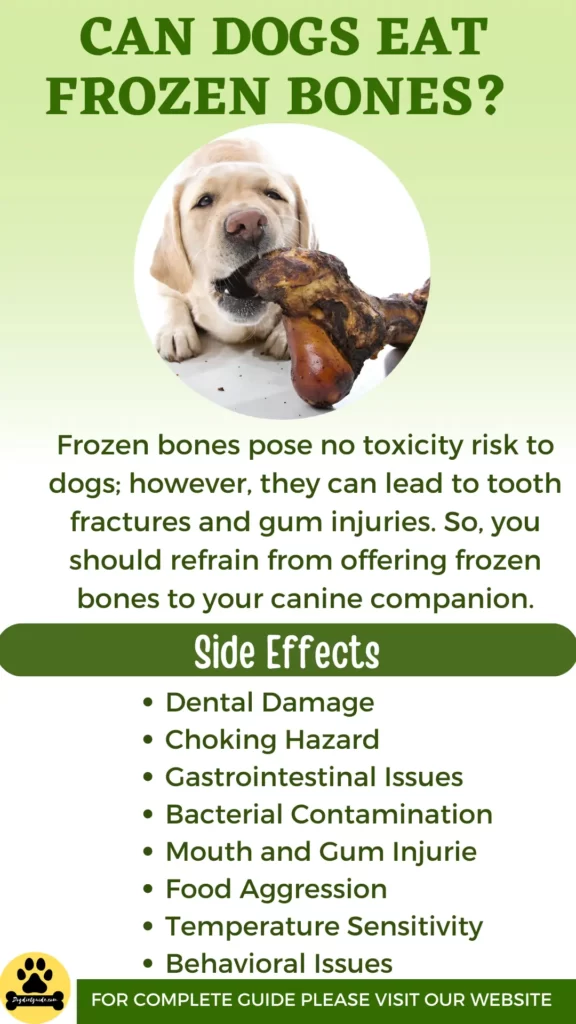
Resources:
https://www.dogsnaturallymagazine.com/recreational-bones-for-dogs/
https://www.akc.org/expert-advice/nutrition/meat-bones-from-market-for-dogs/
https://dogtime.com/dog-health/dog-food-dog-nutrition/52539-ok-give-dog-bone-bones-safe-dogs

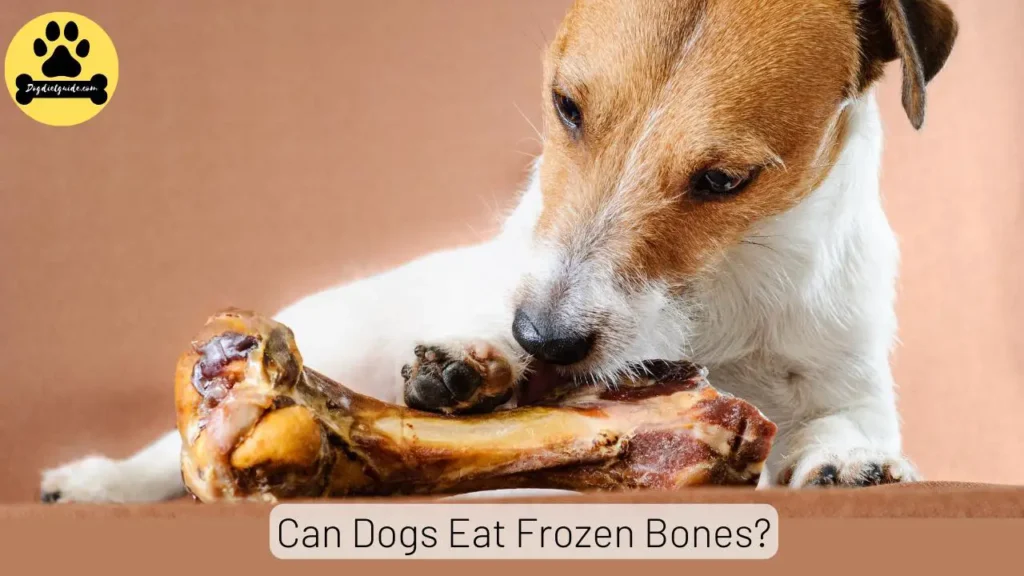

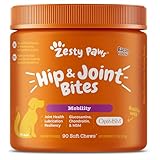






![Can Dogs Eat Blood? 7 Side Effects [Expert Opinion]](https://petskor.com/wp-content/uploads/2022/04/Webp.net-resizeimage-12.jpg)
